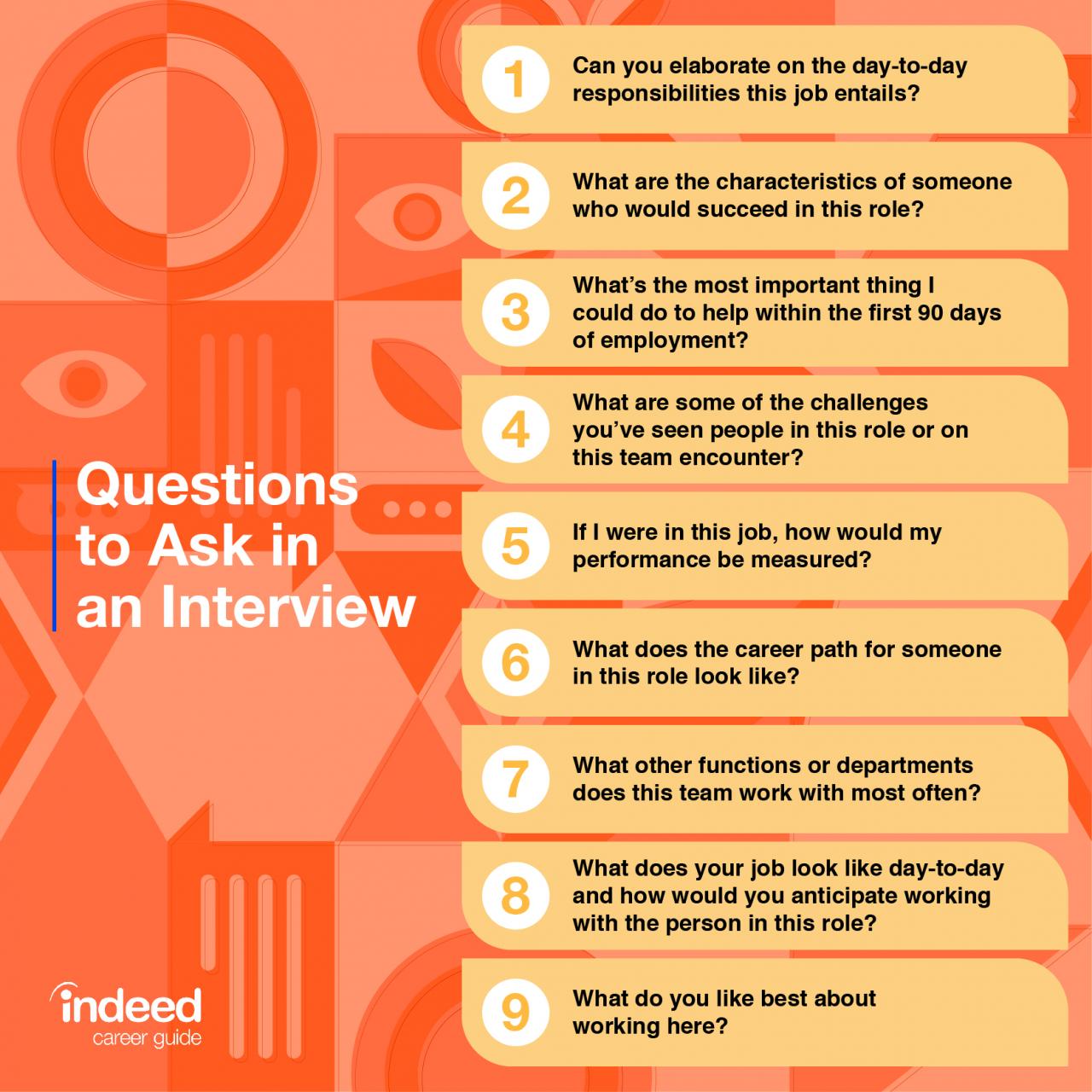Best questions to ask employee in an interview – In the competitive realm of talent acquisition, the art of interviewing plays a pivotal role. By asking the right questions, employers can delve into the depths of a candidate’s capabilities, uncover their motivations, and gauge their cultural fit. This comprehensive guide presents a treasure trove of the best questions to ask employees in an interview, empowering you to make informed hiring decisions and build a high-performing team.
From assessing technical skills to evaluating behavioral competencies, this guide will equip you with the tools to conduct effective and engaging interviews. Dive in and discover the secrets to unlocking the true potential of every candidate.
Interview Best Practices
Interviewing candidates effectively requires following key principles: creating a positive and professional environment, preparing thoroughly, asking structured and relevant questions, actively listening to responses, and evaluating candidates objectively. Common mistakes to avoid include interrupting candidates, asking vague or irrelevant questions, making assumptions, and failing to provide clear instructions or feedback.
Pre-Interview Preparation
Before the interview, gather information about the candidate, such as their resume, portfolio, and social media profiles. Use structured interview questions that align with the job requirements and assess specific skills and competencies. Questions should be designed to elicit detailed responses and allow candidates to showcase their abilities.
Interview Structure
Organize the interview into logical sections, such as introductions, skill assessments, and behavioral questions. Allocate time for each section and designate interviewers to lead specific portions. The interview flow should be clear and allow ample time for both questions and candidate responses.
Skill Assessment Questions: Best Questions To Ask Employee In An Interview
Skill assessment questions evaluate technical skills and job-specific knowledge. Examples include asking about programming languages, software proficiency, or industry-specific expertise. Evaluate responses based on the candidate’s level of knowledge, experience, and ability to apply skills to the role.
Behavioral Interview Questions
Behavioral interview questions explore specific competencies using the STAR method (Situation, Task, Action, Result). Ask questions that elicit detailed accounts of past experiences and assess skills such as communication, teamwork, problem-solving, and decision-making. Interpret responses by focusing on the candidate’s actions, results, and the impact of their behavior.
Situational Interview Questions

Situational interview questions present hypothetical scenarios and ask candidates how they would respond. They differ from behavioral questions by focusing on future behavior rather than past experiences. Create scenarios that are relevant to the role and assess the candidate’s ability to analyze situations, make decisions, and demonstrate problem-solving skills.
Open-Ended Questions
Open-ended questions encourage candidates to elaborate on their experiences and provide detailed responses. They allow for flexibility and exploration of the candidate’s perspectives and motivations. Use open-ended questions sparingly and facilitate discussions by asking follow-up questions to delve deeper into the candidate’s answers.
Illegal and Inappropriate Questions
Avoid asking questions that are illegal or inappropriate, such as those related to age, marital status, religious beliefs, or political affiliations. These questions violate privacy laws and create a biased or discriminatory interview environment.
Interview Closure
End the interview on a positive note by summarizing the key points discussed. Thank the candidate for their time and provide clear instructions for the next steps in the hiring process. Offer feedback to candidates after the interview, regardless of the outcome, to show respect and provide constructive criticism.
Concluding Remarks
Mastering the art of interviewing is a game-changer in the pursuit of exceptional talent. By incorporating the best questions into your interview process, you gain the power to uncover the hidden gems that will drive your organization to new heights.
Remember, every interview is an opportunity to not only evaluate a candidate but also to showcase your company’s values and culture. Approach each conversation with enthusiasm, respect, and a genuine desire to find the perfect fit for your team.
Answers to Common Questions
What are the most common mistakes to avoid during interviews?
Unprofessional conduct, interrupting candidates, asking illegal or inappropriate questions, and failing to create a positive and welcoming environment.
How can I prepare for an interview as a candidate?
Research the company, practice answering common interview questions, dress professionally, and arrive on time.
What are the benefits of using structured interview questions?
Objectivity, consistency, and increased reliability in evaluating candidates.